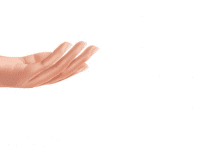If you have ever read any self-help or business books, you know that the most important thing that you have is your attention. People and things all around you are always looking for your attention!
The purpose of things like advertisements, games, social media, and TV shows is to capture your attention and hold it for as long as possible.
Because you will always have to pay attention to or ignore things, these are a list of useful phrases that you can use to describe the things that you want to notice, so that you can separate them from the things that you don’t.
Adjective + attention
These are the common adjectives that are used to describe your attention. They can mean that you pay a lot of attention to something, that you pay almost no attention to something, or anything in between.
1. Close attention
If you pay close attention to something, you want to know more about it and make sure you notice any differences there are. To pay close attention means to watch something very closely, so that you can understand something better.
- I want you to pay close attention to my hands during this magic trick so you can see how I perform the magic trick.
- If Brian does not pay close attention to what is being said in the media, he will not have a job because he is a news reporter.
- Mary pays close attention to the line so she can get in line when there are the fewest number of people.
2. Careful attention
To pay careful attention to something means to notice every small detail there is. This can include noticing the color of a woman’s earrings or whether someone is sitting or standing in the coffee shop.
Usually you pay careful attention if you are looking for something specific, such as a police officer examining a crime scene.
- It was only due to Tammy’s careful attention to the crime scene that the police were able to catch the bad guy.
- Because the teacher did not pay careful attention when she was grading, she made several mistakes.
- The judge paid careful attention to all the details of the case, and was able to make the right decision.
3. Meticulous attention
Meticulous attention takes close and careful attention to the next level. If you pay meticulous attention to something, you are usually very, very detailed.
Things that you might have missed before are impossible to miss now, because you will look over something multiple times and remember all the small things.
This is often a good thing to do if you are working on something very important, such as a job resume for your dream job, but if you put this much effort towards everything you may find that you get tired very easily and try to avoid tasks because you know that you will spend too much time on them.
- Henry’s meticulous attention to detail when editing this report was a godsend to us because the report writer was not paying much attention.
- The best workers know when something that they are working on needs meticulous attention and when it does not.
- A mother who pays meticulous attention to her children may end up being more harmful to them than beneficial.
4. Undivided attention
Typically, you give your undivided attention to a person who is speaking or a task that you are completing. This means that you block out other distractions and focus on one thing at a time.
- The teacher asked her students for their undivided attention.
- Bobby did not even have to ask his audience members for their undivided attention because his speech was so interesting and useful that everyone was already paying attention.
- The people who can give their undivided attention only to the task they are completing are most likely to succeed in it.
5. Full attention
Similar to your undivided attention, giving your full attention to something means that you can put away all your distractions.
The difference is that undivided attention means that you are not working on anything else at the same time, and full attention means that you are putting all your effort towards the task you have at hand.
Giving someone or something your undivided attention does not necessarily mean that you are giving them your full attention.
- Memorizing new vocabulary demands your full attention, or you will forget all the words you just learned right away.
- If you can learn to devote your full attention to just one thing at a time, you will most likely succeed.
- Jason was only able to win the game because he gave his full attention to playing, not being distracted.
Skype English Lesson with a native AMERICAN or BRITISH teacher ››
6. Unwelcome attention
If someone is giving you attention that you do not like, such as a creepy man who continues to stare at you, that is unwelcome attention.
This is often used when describing a person who will not leave you alone even if you ask them to, or the media who will follow celebrities to get pictures and stories about them so they can sell newspapers, magazines, and get people to click their articles online.
- The media was surprisingly cooperative when the celebrities asked for them to stop their unwelcome attention on them.
- One of the best ways to deal with unwelcome attention is to avoid and ignore the person who is bothering you.
- If someone gives you too much unwelcome attention, you can always notify the police.
7. Unwanted attention
Similar to unwelcome attention, unwanted attention is attention that someone or the media gives you that you actively do not want. It is more unwelcome than unwelcome attention.
- Some women receive a lot of unwanted attention from people who don’t understand that the women are simply not interested.
- Abigail was receiving unwanted attention from her ex-boyfriend, but luckily her friends scared him away.
- Some celebrities will put hoods over their heads and wear hats and sunglasses to avoid unwanted attention from the paparazzi or from avid fans.
8. International attention
Something that receives international attention is something that is popular worldwide. It often refers to a person, movie or film, idea, or a story.
For example, the Harry Potter series of books received international attention because it was so popular in so many countries around the world.
While it is technically international attention if people in just two countries are paying attention to something, the phrase international attention is usually only applied if something is very popular in many countries.
- Even now, decades after the first episode of the TV show Friends has come out, it is still receiving international attention from people who want to learn English by watching American television.
- Many things that the American President does will receive international attention, and most presidents would be better off if they remember that fact.
- Movies that receive international attention are often the ones that are the best and make the most money.
9. Media attention
When the media pays attention to something, that is known as media attention. The kinds of media attention can include newspaper reporters and TV news reporters.
Now that many people get their news from social media outlets like Facebook and Twitter, some news outlets can also include Twitter accounts with millions of followers, YouTube video creators, and other nontraditional media.
- Media attention is often short-lived; many people will want to talk to you right away if you do something amazing, but shortly after that they will no longer care.
- Media attention can be overwhelming if they are constantly trying to take photos of you and get interviews with you.
- Some people and companies deliberately try to attract media attention so they can sell their products.
10. Public attention
When the public pays attention to you, that is public attention. Usually, public attention goes along with media attention because most people in the public only understand what is going on through stories in the media.
- Activists want to attract public attention to their issues, so they hold large events and try to educate people.
- When a restaurant has several cases of food poisoning, they often attract negative public attention.
- Public attention can be easily spread through social media, especially through sites like Facebook and Twitter where you can share stories easily with your friends.
11. Extra attention
To give extra attention to something means to put an added amount of attention on something.
- You need to pay extra attention to your son because he gets easily distracted when he does his homework.
- The extra attention that the teacher gave the student made a huge difference in his life.
- I wanted Allen to give the project extra attention because it would bring in the most money for the company but he was unwilling to do it.
12. Little attention
If you do not want to pay attention to something, you give it little attention.
- Little attention was paid to the new project, so it was scrapped within a month.
- The little attention that was given to Tom suited him just fine.
- I wanted to work harder on this but I just had too little attention to give.
13. Insufficient attention
If you are working on something but don’t focus hard enough, you give it insufficient attention. You cannot finish a task or maintain a healthy relationship with someone if you give it insufficient attention.
- The committee gave this project insufficient attention, but they expect it to be successful anyway?
- Insufficient attention is the reason that the side projects of many people fail.
- Teachers are sometimes able to pay insufficient attention to their students, causing them to fail behind in the class.
Verb + attention
When you talk about attention, these are common verbs that you can use to describe it.
14. Pay attention
To pay attention is the most common way to describe attention. To pay attention to something means to notice it and make sure that you do something about it.
- Pay attention to where you are walking so you do not fall down or trip on something.
- If you can pay attention to all the details, you will be able to stand out from everyone else.
- It is crucial that you pay attention to the grammar in the papers that you edit because they are written by non-native English speakers.
15. Draw attention
To draw attention to something means to get as many people as you can to pay attention to it.
You can attract notice from someone, especially if you are applying for a job and want the hiring manager to take an interest in you, for example. To draw attention is often something that you try to do, or a deliberate act.
- Gaston wanted to draw attention to himself by dancing in the hallway, but people just thought he was a distraction than someone worth paying attention to.
- The professor wanted to draw attention to the new photos that he put on the board, but no one was interested in hearing what he had to say.
- Be careful who you draw the attention of, because you might come to regret it.
Skype English Lesson with a native AMERICAN or BRITISH teacher ››
16. Attract attention
To attract attention means that people start to notice you, but not necessarily because you want them to.
You can attract attention because you are the best at something, whether or not you go around telling everybody about your accomplishments, or because you are simply different from other people.
- Wallace attracted the attention of the faculty at Harvard because he created a new synthetic material that could be used in many different situations.
- Polly the parrot attracted attention because she kept repeating what other people were saying around her.
- There are many ways to attract attention, but the best way is to subtly let people know about the cool things you are doing, without having to brag about it.
17. Commands attention
Something that commands attention is something that you cannot help but notice and pay attention to. Some people have personalities that make it easy for them to command your attention, but some people and things command attention just because they are so different and useful.
- When companies such as AirBnb and Lyft first came out, they commanded attention because they were so different, yet incredibly useful.
- Politicians, especially presidents and prime ministers, command attention because of the power that they have.
- This urgent task from my boss commanded my attention even though I was working on something else.
18. Divert attention from something to something
If you were reading, but then you change to paying attention to the show playing on the TV, your attention is diverted from your book to the TV. This means that you change the object of your focus from one thing to another.
- “I now want to divert your attention from the slides back to your book,” said the professor.
- After a loud BOOM, Jessie’s attention was diverted from playing her piano.
- When their mom came home, the children tried to divert her attention away from the mess they made in the kitchen to the new card that they made her.
19. Give attention
To give something attention means to pay attention to it, usually despite the fact that it may not be beneficial for that person.
- The professor gave me her attention even though I was asking a very elementary question.
- “Give more attention to writing your reports!” yelled the secretary when she read the half-baked reports that the employees turned in.
- Give me your attention for just one more minute, and then you can go.
20. Lavish attention
To lavish attention on someone means to give as much attention as possible to that person. Typically, this is said for people, who pay a lot of attention on someone because they love them.
- Patty lavished so much attention on her only son that he became a spoiled brat.
- The husband lavished so much attention on his wife that she became the envy of all her friends.
- Molly tried not to lavish attention on any one of her children for fear that they would think she was being unfair to her other children.
21. Direct attention from something to something
To direct attention means to focus intently on something. Your attention can be directed from one thing to another.
- Professor Max directed his students’ attention to the board when he began class.
- Once I got tired of the task, I directed my attention from my work to a new TV show that I was watching.
- I had not noticed it before, but once I directed my attention to the classroom it looked much different than I remembered.
22. Direct attention back to
If your attention has wandered from something, you can direct it back to a person or task that you are working on.
- My son got distracted talking about his Transformers, so I directed his attention back to the book.
- Trevor directed the attention of the media back to the main issue after they started reporting on irrelevant details.
- The teacher directed the attention of her students to the principal, who was speaking on the stage.
23. Shift attention
To shift your attention means to move your attention from one thing to another.
- When you are done reading, shift your attention back up to the board, please.
- Jimmy shifted his attention from his ex girlfriend to a new girl that he met at summer camp.
- “Shift your attention back to me,” said the professor.
24. Have one’s attention
If someone is paying attention to you, you have their attention. This often refers to a person, but can also refer to things and problems.
- Global warming has the attention of the media.
- Now that I have your attention, I would like you to flip your books to page 352.
- If you have someone’s attention, you should treasure it because they are choosing to spend their time paying attention to you.
25. Vie for attention
When there are many things that you could pay attention to, those things vie for your attention. While you could also describe this as competing for attention, vie is more often used.
- With so much technology nowadays vying for children’s attention, it is no wonder that many of them have trouble concentrating on just one task at a time.
- All the men are vying for Rebecca’s attention.
- I could not care less what you think, but I definitely am not vying for Jackie’s attention.
Skype English Lesson with a native AMERICAN or BRITISH teacher ››
26. Bring something to one’s attention
If you notice something that seems wrong, you can bring that error to the attention of your boss, or someone who can fix the problem.
Usually, this phrase is used if you notice a mistake somewhere, or you are teaching something and you want your students to notice specifically something that they might overlook otherwise.
- “I want to bring everyone’s attention to the fourth line down on page 6, does anyone see the mistake here?” asked the teacher.
- When I suspected that there were mistakes in the accounting records, I brought my suspicions to my supervisor’s attention right away.
- The purpose of newspapers and TV news is to bring current events to the attention of their readers and viewers.
27. Focus attention
Similar to giving your undivided attention to something or someone, to focus your attention on it or them means to make it the center of what you think about and pay attention to.
Focusing your attention on something means that you give your undivided attention to it and try to actively block out all other influences on that thing.
- Adam focused his attention on swimming well, so he was able to block out the distraction of the crowd and win first place.
- The president focused the attention of the nation on gun control issues after a gun related tragedy.
- If you can focus your attention on finishing your task, you can get it done more quickly.
28. Receive attention
To receive attention means that other people are noticing you, and that you are the object of the attention. This phrase is most often used for people, groups, and ideas.
- All the not for profit organizations try to earn more donations when they receive media attention.
- Because the logistics team of the party planners received the most attention, they were able to put on a huge and elegant party.
- When I first received attention from my friend, I did not know that we would end up married five years later.
Attention + nouns
29. Attention to detail
If you have a special talent for noticing details and small things that many other people will overlook, you may be paying attention to detail.
While you can pay attention to many things, this phrase specifically means that you look for the small things that might make a big difference.
- If you had more attention to detail, you would have caught all these spelling errors in the report.
- Thank goodness Quinton paid a lot of attention to detail, so we were able to answer all the questions that people would have about our product before we created it.
- Attention to details is often a great advantage.
30. Attention span
Someone’s attention span is the length of time that they will be able to pay attention to something. This includes listening to someone talk about it, having them finish a task, etc. Often, the attention span of children is much shorter than the attention span of adults.
- If your child has ADHD, it means that they have a short attention span and will be distracted easily.
- Even if you have a really long attention span, it helps to take breaks while you are doing a task.
- The attention span of a child is much shorter than an adult’s, so you must be more patient with them.
31. Center of attention
To be the center of attention means to have the attention of everyone in the room on you.
While you can use this phrase to describe a presenter who is speaking to a large group of people in a room, and therefore has all of their attention, this is usually not how center of attention is used.
It is usually referring to a situation in which you would expect other people to be paying attention to many different things, such as a party or a conference.
If someone is the center of attention in one of these scenarios, they are someone who is very charismatic and doing something that makes you notice them.
- In any room that she enters, Paula becomes the center of attention.
- Even though there were many works of art at the auction, only the piece by Pablo Picasso was the center of attention.
- Amy never expected her research to turn her into the center of attention at the conference, but it turns out everyone at the summit was interested in her work.
Skype English Lesson with a native AMERICAN or BRITISH teacher ››


























